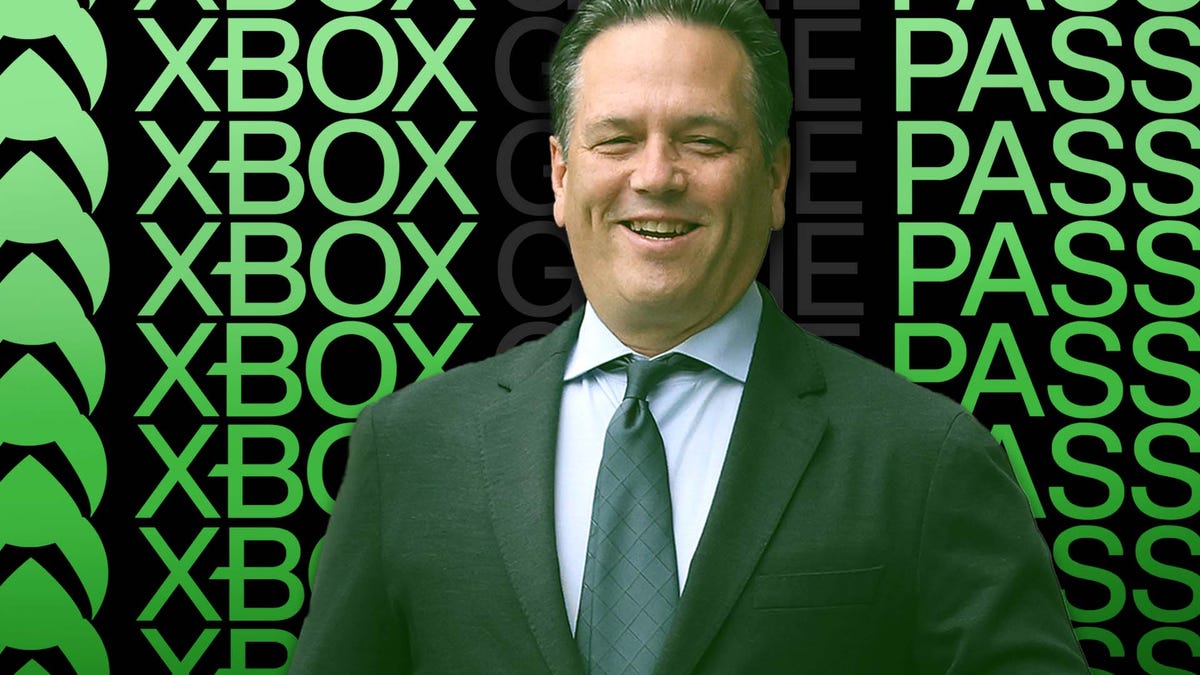On May 7, Xbox announced that it was closing three studios: Arkane Austin (Redfall), Tango Gameworks (Hi-Fi Rush), and Alpha Dog Games (Mighty Doom). Support studio Roundhouse Games was also being absorbed by Zenimax Online Studios (Elder Scrolls Online). The news is yet another example of Xbox—which has spent billions buying up studios—cutting costs, laying people off, and rearranging chairs on the good ship Xbox, which lately feels like it’s drifting aimlessly.
Now, it’s time to acknowledge that Xbox boss Phil Spencer is making bad decisions.
Since the era of Xbox One, Spencer has been the face of Xbox, consistently saying things that make his devout Xbox fans praise him and avoiding as much negative press as possible. He’ll tout the merits of emulation and game preservation, while acknowledging that Xbox could do more (but has no plans to.) In November 2021, when Activision found itself in hot water following a Wall Street Journal report claiming then-CEO Bobby Kotick allegedly had knowledge of the toxic behavior at his company, Spencer was one of the biggest voices in the video game industry speaking out against the Call of Duty publisher. “This type of behavior has no place in our industry,” Spencer claimed in an email. An SEC filing revealed in 2022 that a few days after the WSJ’s story was published, Spencer called Kotick and started working on the deal to buy Activision.
Of course, this is pretty common behavior for a powerful and rich executive who is part of a massive global corporation. But Spencer has been able to (mostly) avoid criticism sharing stories of how he believes gaming should be for everyone while making decisions that directly contradict this claim.
A history of corporate contradictory
In October 2020, shortly after Xbox announced its plans to consume Bethesda, Spencer told Kotaku: “This deal was not done to take games away from another player base” and added that Xbox wants “more people to be able to play games, not fewer people to be able to go play games.” Yet, in March 2023 Redfall director Harvey Smith said that Microsoft stepped in after buying Bethesda and canceled a PS5 port of the vampire hunting co-op game. Starfield shipped only on Xbox and PC. And despite a few Xbox games—like Grounded and Sea of Thieves—jumping ship to PlayStation and Switch, future big titles like Indiana Jones won’t be multiplatform.
Xbox’s boss has also talked a big game about giving developers the freedom to make what they want to make, explaining in a May 2023 interview with Kinda Funny: “When a team like Rare wants to do Sea of Thieves, when a team like Obsidian wants to do Grounded, and Tango wants to go do Hi-Fi [Rush] when everyone probably thought they were doing The Evil Within 3. I want to give the teams the creative platform to go an push their ability, push their aspirations.”
While Spencer may say wonderful things about creativity and letting his teams make what they want to make, the reality is that if those bets don’t pay off (and even when they do), the teams are at risk of getting gutted or shut down, all while Microsoft becomes one of the few companies in history to be worth three trillion dollars.
But while Spencer was something of an industry darling for over a decade, it’s become clear in the last two years or so that he isn’t infallible, and perhaps deserving of some scrutiny. Under his leadership at Xbox thousands of people were laid off not long after the company spent billions of dollars to acquire Bethesda and Activision. Studios have been closed. Games have been canned. DLC has been canceled. And Xbox’s first-party output has continued to be feast and famine—in 2022 the company practically had nothing. In 2023 it had some stuff to show. This year, it’s quiet.
Sure, its release schedule will (assuming nothing is delayed) pick up later with the release of Seuna’s Saga and Indiana Jones and the Great Circle, but after all the money spent on building Xbox’s stable of studios and teams, after all the cuts and layoffs, after all the resources poured into growing the brand, Xbox has very little to show but poor console sales and a few cool games like Hi-Fi Rush. (Though, not cool enough to spare the studio from being shut down.)
Spencer’s been running Xbox for a decade
Since 2014, Spencer has been the main person at Xbox’s helm. While his biggest supporters might want to blame the economy, PlayStation, or regulators, at the end of the day, he’s making calls that aren’t helping his staff or gamers. Sure, his Game Pass creation and the push to expand it have been rightfully applauded by many. It was a genuine sea change for the industry and did indeed bring more games to more people. But beyond that one big victory, the rest of Spencer’s run as Xbox’s top boss has been a series of layoffs, delays, apologies, poor sales, and mergers meant to feed Game Pass, but which instead have seemingly cost a lot of people their jobs.
In 2023, amid 10,000 cuts at Microsoft, Spencer wrote in an email to staff that he and the gaming team’s leaders at the company “had to make decisions that we felt set us up for the long-term success of our products and business.” This involved cutting around 800 jobs from Xbox.
Then in 2024, just months after closing its deal with Activision, Xbox cut 2,000 jobs. In another email to staff, Spencer said that he and other team leaders at Xbox and Activision Blizzard had “committed to aligning on a strategy and an execution plan with a sustainable cost structure that will support the whole of our growing business.”
Yet, after years of making the “best plans” for Xbox, people, are once again losing their jobs. Four Xbox/Bethesda studios are being shut down. I hope that this time Spencer and the leadership at Microsoft have found the right plan that will actually lead to growth, good games, and stability instead of more staff cuts and soaring profits for the company. And I hope moving forward Xbox fans and the media hold Spencer more accountable for future mistakes, cuts, and failures.
Correction: 05/07/2024, 6:05 p.m. ET: This story has been updated to clarify which studios were closed and which were absorbed.
.

Laura Adams is a tech enthusiast residing in the UK. Her articles cover the latest technological innovations, from AI to consumer gadgets, providing readers with a glimpse into the future of technology.








